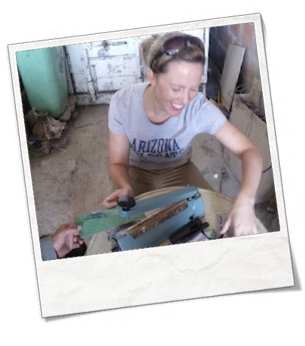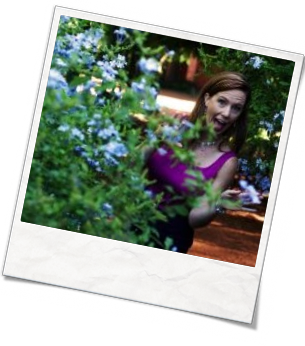Q&A WITH EngHERO: Erica Lee Garcia

Erica Lee is a professional engineer who not only provides professional consultation to engineering companies, but also uses her experience and abilities to help young engineering students/graduate get started in their career and also raises awareness about engineering alongside Engineers Without Borders.
Q: What’s one thing you wish you knew about engineering back when you were in high school?
I think that one thing would be that engineering is really different from math or science. Of course they are related and needed, but engineering itself is nothing like the educational experience. Engineering is fun! It’s about problem-solving, improvising, and teamwork. Also engineering helps people’s lives, make it safe, cost-effective.
Q: What’s your proudest accomplishment as an engineer?
I used to work in a mining company. I travelled to Africa and South America where there were a lot of mines and I was a speaker for workers of the company. I talked about a method similar to 6-sigma (later explained) and problem solving. Even though there were a lot of mines in some places, after all that can be drained is taken from the mine, there is no more work available and many lose their jobs. For me, it’s a proud accomplishment, because I got to visit them and train some people, and give them some skills that not only helped them save money at the present time, but also could be used for the rest of their lives, allowing them to solve problems.
Q: Tell me about a time in your career when your work has been about discovery or curiosity?
I used to work for a company called Magna which produces all sorts of car parts. When working in the factory, we had a problem where some of the parts did not fit together properly. Now each part was worth about $17, so if they were thrown out, that would be thousands of dollars per day. So I was put in charge of a group to try and solve this problem. In this group we used a 6-sigma method, where there are specific steps to follow; mainly we need to identify what the problem is, why does it matter, what are its causes, and finally find a solution. When we came up with a possible solution, we had to test them and collect data, like “how many bad ones now?” Finally, we realized that the problem came from the supplier of a specific part, where all of the parts were not identical, so we solved the problem by allowing a tighter window to our supplier. It was one of my first projects, and the problem we were working on was very subtle, so it felt good when we were able to solve it; and then I got started on a next project.
Q: What are you doing these days?
My work is a combination of entrepreneurship and engineering. I am the president of my own company, Erica Lee Consulting, where we give our client companies advise on how to get better results while wasting less. I am also a coach/mentor for young engineering students or young engineers who have just graduated; it is really difficult when you have just graduated to know what the next step is, so we try and help them become more clear and confident with what they are going to do. And finally, I also work with Engineers Without Borders, where I talk to younger kids to help them understand their capabilities to make a difference in the world and make it better. I also help organizers of events for children to come up with different activities, where we’re talking to children in their own language, not ours.
Q: Do you feel your work contributes to society? How so?
For sure, in terms of my mentoring, I help young engineers gain clarity and confident and be happy with what they have chosen to do; it’s very important to enjoy what you do and be happy with your work. With the work I do in Engineers Without Borders, we can see the next generation as growing up with much greater understanding, empathy, and tolerance for complexity. They will care about sustainability when thinking of solutions and those kids are going to be 21st century problem solvers. Talking to children is something that other engineers can also volunteer to do, and it is coming that will have a great impact in the long run.
Q: Why do we need more female engineers?
I believe that engineering field needs to be as diverse as the population it serves. Because engineering and what it develops has a ripple effect, influence many other things around the world. Whenever you make something new, you need to consider the opinion of the stockholders and its sustainablitity, because it you don’t it won’t last long. Traditionally, we have had a lot of men in the field, and we have to fix a lot of problems; this doesn’t mean that men are to blame for these problems that we yet have to solve, but our resources are much better now and men have a specific type of intelligence. To have a balanced viewpoint, we need to have women who are commonly good at characteristics like empathy, creativity and caring. It’s easy to reach a decision when all people share the same opinions and are on the same page, but having one person who questions that decision is a must even though it can be tricky.
Also, it’s not just that we need a balance between men and women in engineering; engineering needs to have all different types of diversity, from background ethics to physical characteristics.
Q: Why did you choose to go into engineering?
I don’t really know how I chose engineering; there isn’t anyone in my family in engineering either. I know that I wanted to impact the physical world. Even as a kid, I was always looking for ways to optimize and do things better (for example, when it rained, I would go in the driveway and dig channels into the dirt to make the water flow better out of the driveway). For me, it was between going into engineering or music. I did not want to be a scientist, because I did not want to work with theories. But because I was good at math and science, school counsellors suggested and I chose to go into engineering. I believe that I made the right decision, because now I know that through engineering I am making a tangible impact, and from the beginning that was very important to me.
– – – – – – – – – – – – – – – – – – – – – – – – – – – – – – – – – – – – – – – – – – – – – –

